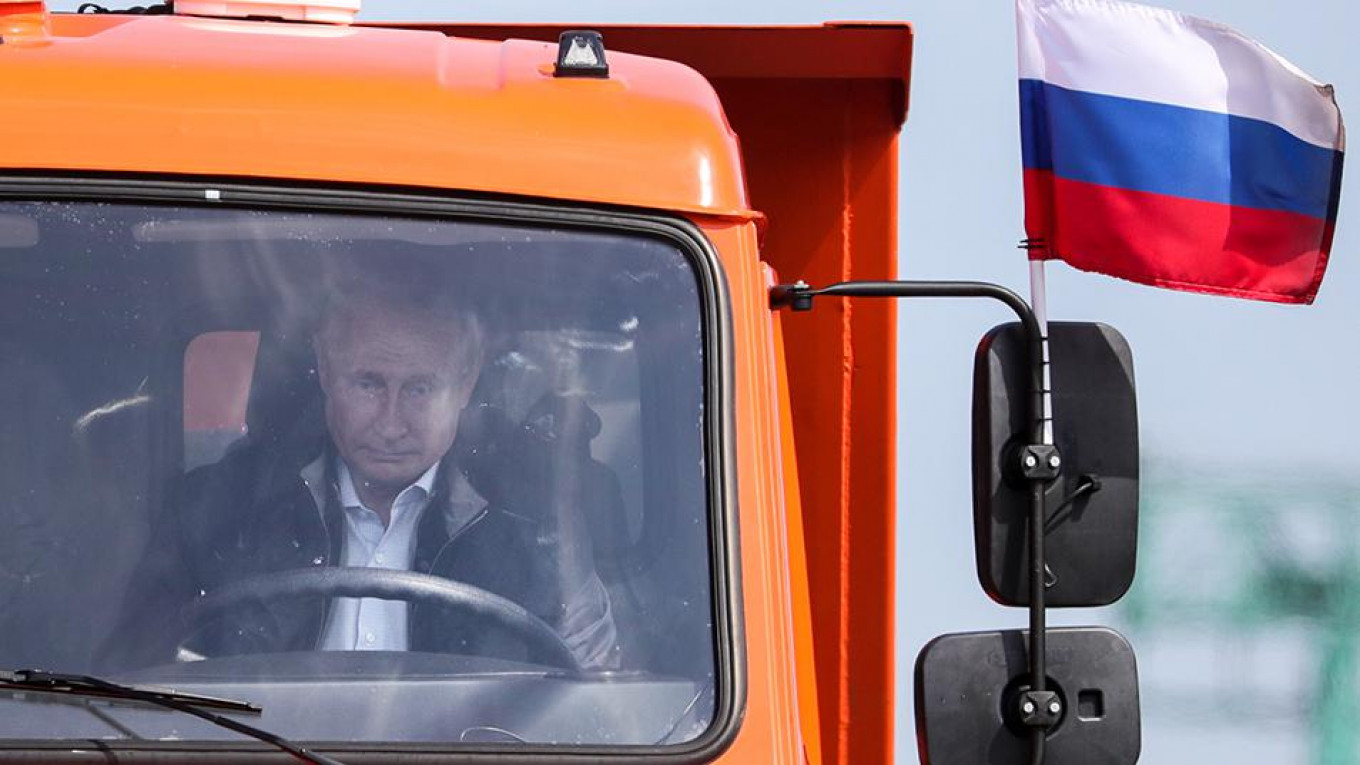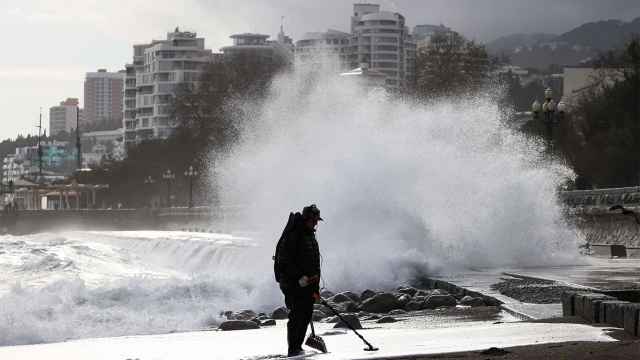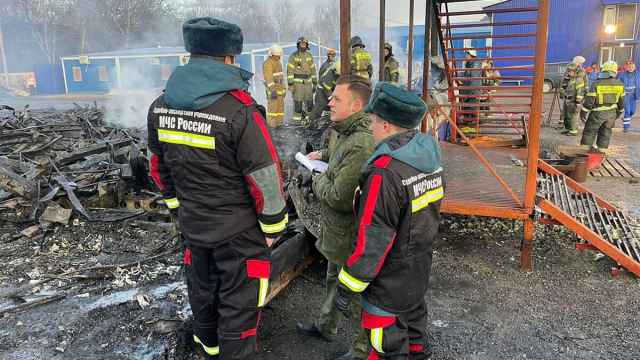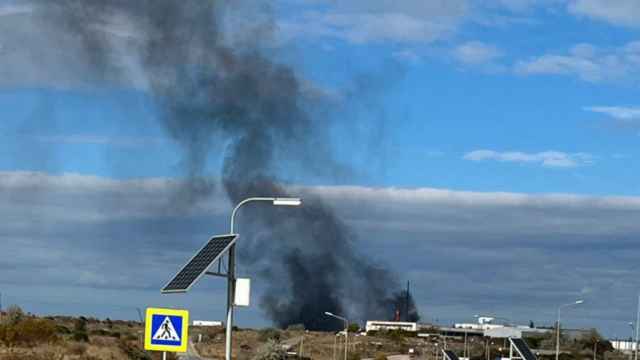Russian President Vladimir Putin, driving a truck, unveiled the auto section of a new road-and-rail bridge linking Russia to the annexed Crimean peninsula on Tuesday, defying Ukraine which said the move showed cynical disregard for international law.
Putin, at the wheel of a heavy KamAZ truck, drove the full 19 km (12 miles) across the bridge from the Kerch Strait, which some Russians call "Putin's bridge" and which is designed to link Crimea into Russia's transport network.
At a ceremony broadcast live on state TV, Putin, dressed in blue jeans, was met by cheering workers on the Crimean side after driving the orange-coloured truck across the bridge in a small convoy of vehicles.
"At last, thanks to your talent this project, this miracle has happened," Putin told the crowd of workers.
In Kiev, Ukrainian President Petro Poroshenko said: "The illegal construction of the Kerch bridge is the latest evidence of the Kremlin's disregard for international law.
"It is particularly cynical that its opening is happening on the eve of the latest anniversary of the deportation of the Crimean-Tatar people by the Stalin regime."
Russia annexed Crimea from neighbouring Ukraine in 2014, drawing sanctions and prompting a sharp deterioration in ties with the West. But many in Russia saw the move as restoring Moscow's rule over a historically Russian region.
Built at a cost of 223 billion roubles ($3.60 billion), the bridge is set to be the longest dual-purpose span in Europe.
The Kremlin said the bridge would be opened to cars on Wednesday. The rail section was due to be completed at the end of 2019.
"Putin initiated this project himself. Many didn't believe these plans were possible," Kremlin spokesman Dmitry Peskov told reporters on a conference call on Tuesday ahead of the ceremony.
"This is an extremely important day from this point of view and in a practical sense and in symbolic terms."
A Message from The Moscow Times:
Dear readers,
We are facing unprecedented challenges. Russia's Prosecutor General's Office has designated The Moscow Times as an "undesirable" organization, criminalizing our work and putting our staff at risk of prosecution. This follows our earlier unjust labeling as a "foreign agent."
These actions are direct attempts to silence independent journalism in Russia. The authorities claim our work "discredits the decisions of the Russian leadership." We see things differently: we strive to provide accurate, unbiased reporting on Russia.
We, the journalists of The Moscow Times, refuse to be silenced. But to continue our work, we need your help.
Your support, no matter how small, makes a world of difference. If you can, please support us monthly starting from just $2. It's quick to set up, and every contribution makes a significant impact.
By supporting The Moscow Times, you're defending open, independent journalism in the face of repression. Thank you for standing with us.
Remind me later.






